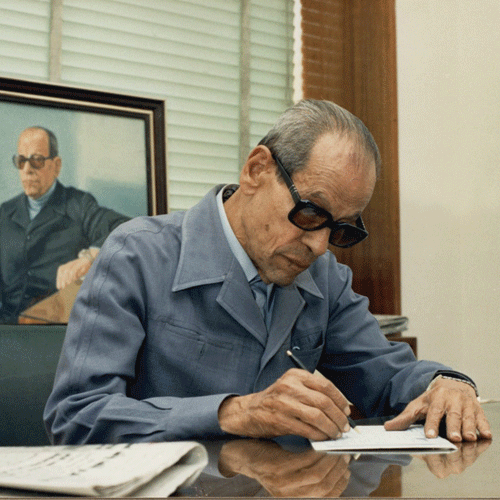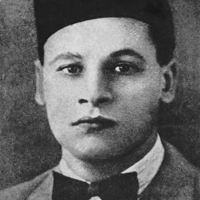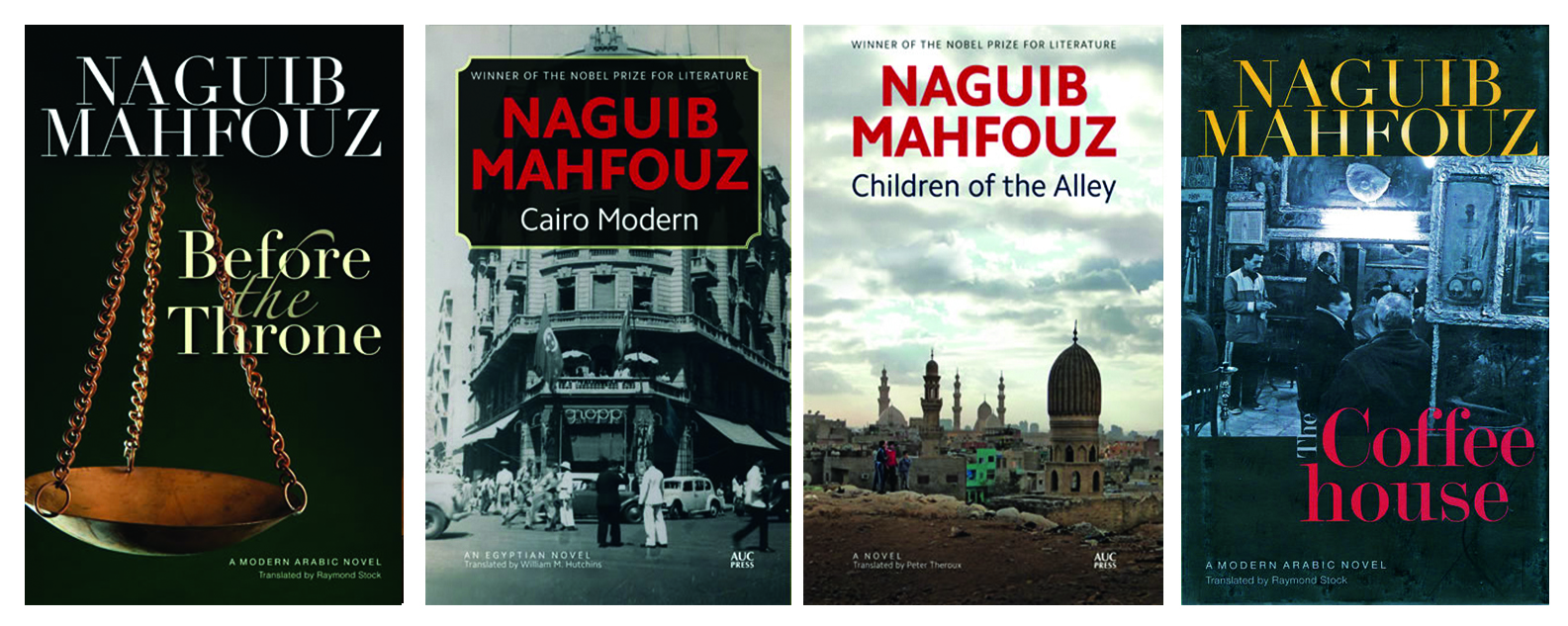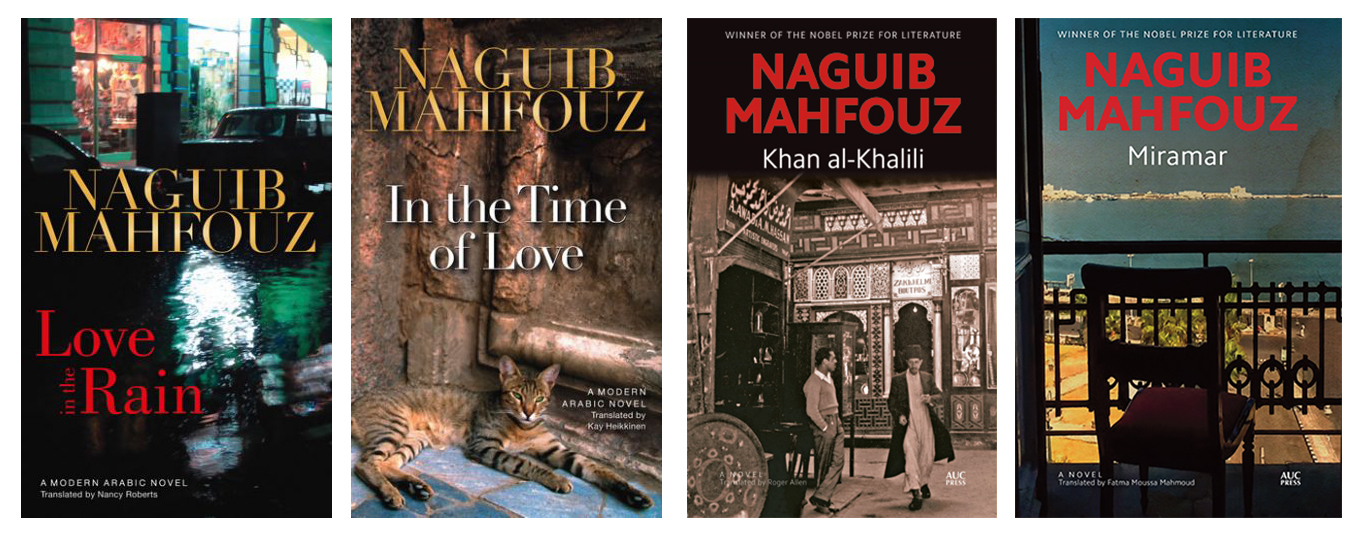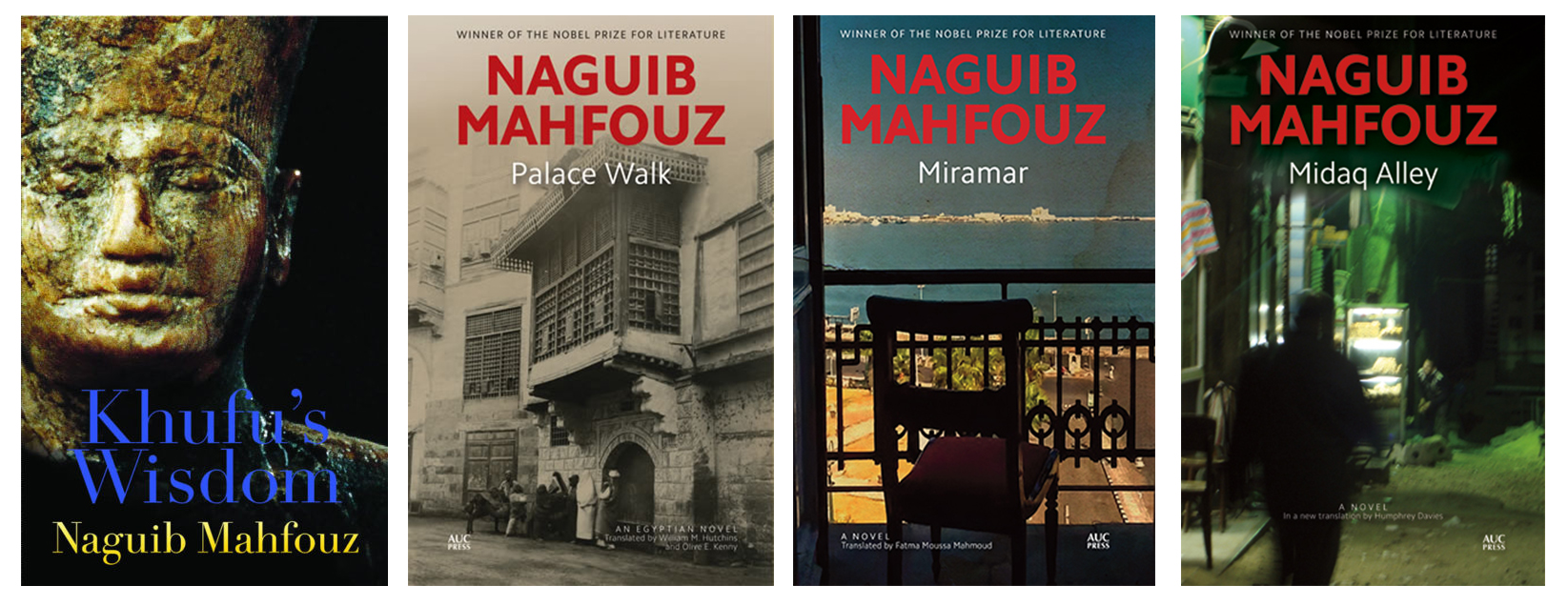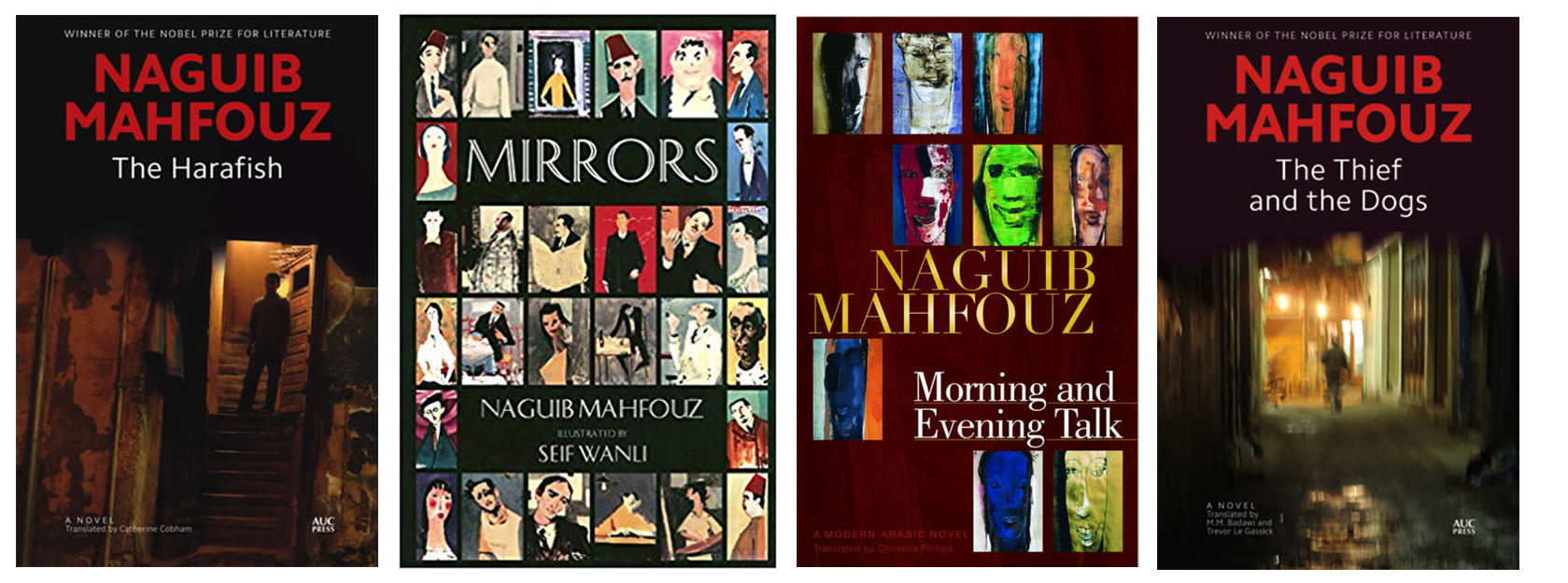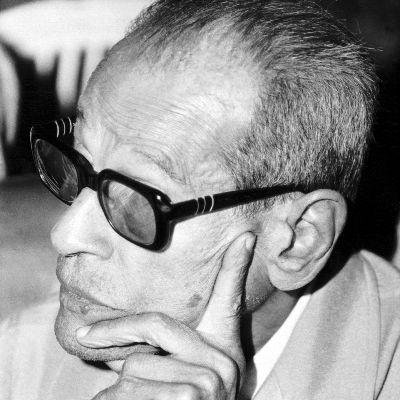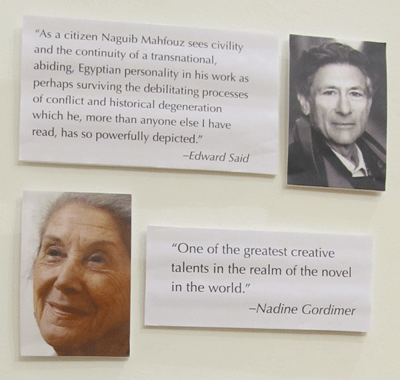“My love is for the people of the alleys, not only the old alleys of Cairo but the alleys of the whole world.” —Naguib Mahfouz
Naguib Mahfouz was born on December 11, 1911 in the crowded Cairo district of Gamaliya. The prolific author wrote 35 novel-length works, hundreds of short stories and plays and 25 screenplays, while also holding a day job as an Egyptian civil servant between 1934 and his retirement in 1971. He was awarded the Nobel Prize for Literature in 1988.
The Nobel Laureate
In 1988, the Swedish Academy awarded Naguib Mahfouz the Nobel Prize for Literature, noting that the writer, “through works rich in nuance—now clear-sightedly realistic, now evocatively ambiguous—has formed an Arabian narrative art that applies to all mankind.”
 Other recent winners of the Nobel literature prize include Nadine Gordimer, Günter Grass, Harold Pinter, Orhan Pamuk, and Doris Lessing.
Other recent winners of the Nobel literature prize include Nadine Gordimer, Günter Grass, Harold Pinter, Orhan Pamuk, and Doris Lessing.
Naguib Mahfouz, who very rarely traveled outside Egypt, did not attend the Nobel Prize Award Ceremony in Stockholm. His Nobel Lecture was read (first in Arabic, then in English) to the Swedish Academy on his behalf by Mohamed Salmawy, president of the Egyptian Writers’ Union, former editor-in-chief of the French-language weekly Al-Ahram Hebdo, and a columnist in the Arabic-language daily Al-Ahram. In the lecture, Mahfouz introduces himself as “I am the son of two civilizations that at a certain age in history have formed a happy marriage. The first of these, seven thousand years old, is the pharaonic civilization; the second, one thousand four hundred years old, is the Islamic civilization.” To read the complete lecture, click here.
The Award Ceremony Speech was delivered by Professor Sture Allén from the Swedish Academy, who said: “In Arabic literature, the novel is actually a 20th-century phenomenon, more or less contemporary with Mahfouz. And it was he who, in due course, was to bring it to maturity. Some of the milestones are Midaq Alley, The Trilogy, Children of the Alley, The Thief and the Dogs, Adrift on the Nile, Respected Sir, and Mirrors. Greatly varied and partly experimental, these novels range from psychological realism to an allegorical and mystic-metaphysical design.” To read the complete speech (translated from Swedish), click here.
In its official announcement, the Swedish Academy praised the literary legacy of the Egyptian writer, saying “[Mahfouz’s] production has meant a powerful upswing for the novel as a genre and for the development of the literary language in Arabic-speaking cultural circles.”
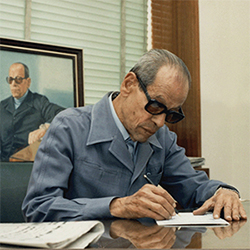 His Translated Works
His Translated Works
In the 100th anniversary year of the birth of Naguib Mahfouz, the AUC Press published two more English translations of his novels, Love in the Rain, written by Mahfouz in 1973, translated by Nancy Roberts, and Heart of the Night, first released in Arabic in 1975, translated by Aida A. Bamia, along with a selection of the most important works of Egypt’s Nobel literature laureate, The Essential Naguib Mahfouz: Novels, Short Stories, Autobiography, edited by Denys Johnson-Davies.
His Novels
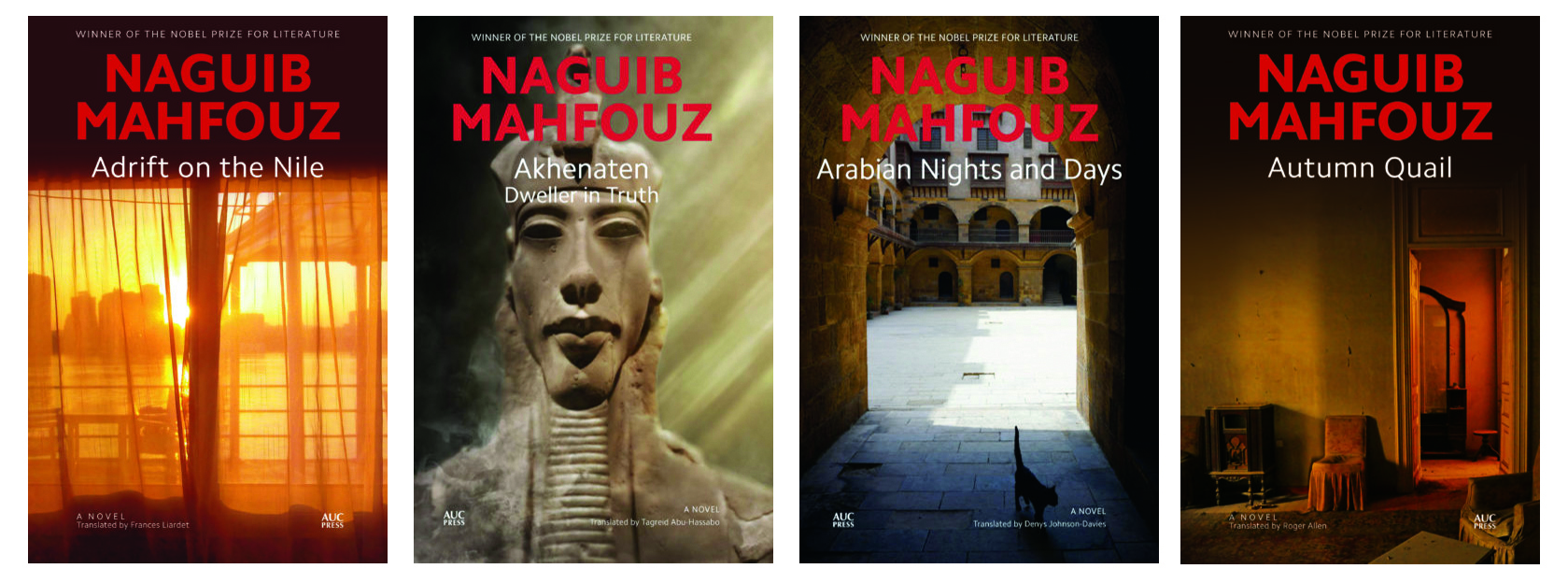
The Naguib Mahfouz Centennial Library
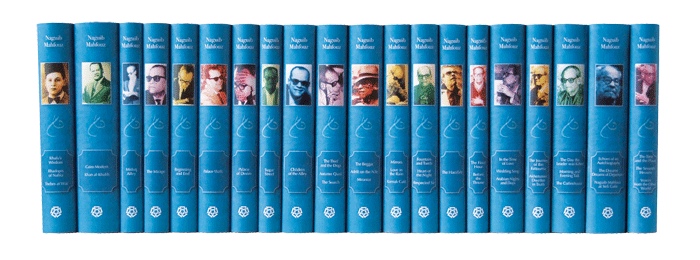 To mark the centenary of the birth of Naguib Mahfouz and the seventy-year career of one of the most recognized writers in the world, the AUC Press published a one-time-only limited edition of the Naguib Mahfouz Centennial Library, a definitive collection of 20 hardbound volumes featuring all his novels, three collections of his short stories, and his autobiographical writings.
To mark the centenary of the birth of Naguib Mahfouz and the seventy-year career of one of the most recognized writers in the world, the AUC Press published a one-time-only limited edition of the Naguib Mahfouz Centennial Library, a definitive collection of 20 hardbound volumes featuring all his novels, three collections of his short stories, and his autobiographical writings.
This unique library includes all 35 of his novels, from Khufu’s Wisdom, first published in Arabic in 1939, to his last work of extended fiction, The Coffeehouse (1988), along with thirty-eight short stories, his Echoes of an Autobiography, his exquisite late series of intensely short fictions The Dreams, and the collection of his weekly newspaper columns, Naguib Mahfouz at Sidi Gaber.
Interviews
AUC Press Documentary on the life of Naguib Mahfouz, September 2011
Reflections by AUC Press Director Mark Linz on Naguib Mahfouz Centennial and AUC Press 50th Anniversary, August 2011
Rare Interview with Naguib Mahfouz, 1989
Faten Mahfouz speaks about her Nobel laureate father, May 2011
Translator Denys Johnson-Davies talks about Naguib Mahfouz, May 2011
Interview by writer and journalist Mohamed Salmawy, March 2006
The Art of Fiction – Interview with Charlotte El Shabrawy for the Paris Review, Summer 1992
Films Based on Mahfouz Novels
Over thirty Egyptian films have been based on Naguib Mahfouz’s novels and short stories.

“If you are looking for material for a good movie – or know someone who is looking for it – you should/must look at Mahfouz ‘ novels. There is lots of material still to be used.” —Anna-Soler Pont, Spanish literary and film agent and producer, Kitab.ae (100 Years of Naguib Mahfouz), March 18, 2011
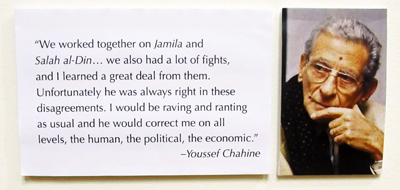
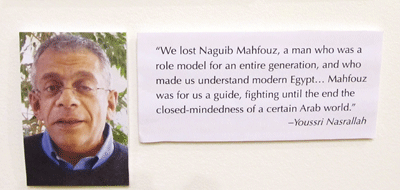
Tributes To Mahfouz
Naguib Mahfouz was arguably the greatest Arab novelist of the 20th Century, BBC News, August 30, 2006
Mahfouz, a slender, modest, shy man who once described himself as “a fourth- or fifth-class writer,” was often called the Egyptian Balzac for his vivid frescoes of Cairenes and their social, political and religious dilemmas, The New York Times, August 30, 2006
Naguib Mahfouz: The central figure, Al Ahram Weekly, August 31 – 6 September, 2006
Nobel prize winning novelist who brought Arabic fiction to the western world, The Guardian, by AUC Press translator Denys Johnson-Davies, August 31, 2006
Naguib Mahfouz, a great Egyptian writer, died on August 29th, aged 95, The Economist, August 31, 2006
Innovative novelist and author of ‘The Cairo Trilogy’ who won the 1988 Nobel Prize for Literature, The Independent, August 31, 2006
Egyptian novelist who pioneered an Arabic literature which explored contemporary urban themes, The Times, August 31, 2006
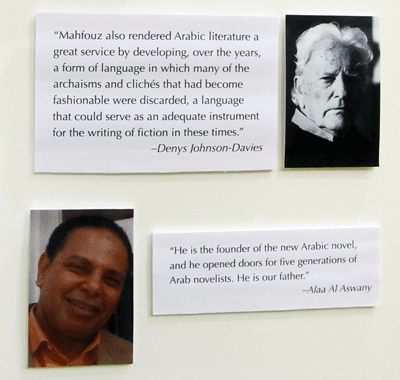
More Links
The Mahfouz Centennial Celebrations 2011 brochure
Arabic-Language Works of Naguib Mahfouz
A Nobel for the Arab Nation, Saudi Aramco, 1989
Listen to The Thief and the Dogs by Naguib Mahfouz – The Big Read, Radio Show, The National Endowment for The Arts
Naguib Mahfouz Cafe, The Real, BBC
Naguib Mahfouz’s influence on Arabic Literature: In the Shadow of the Master, Qantara.de, January 17, 2011
Remembering Naguib Mahfouz: Rendezvous at Café Ali Baba, Qantara.de, January 8, 2011

